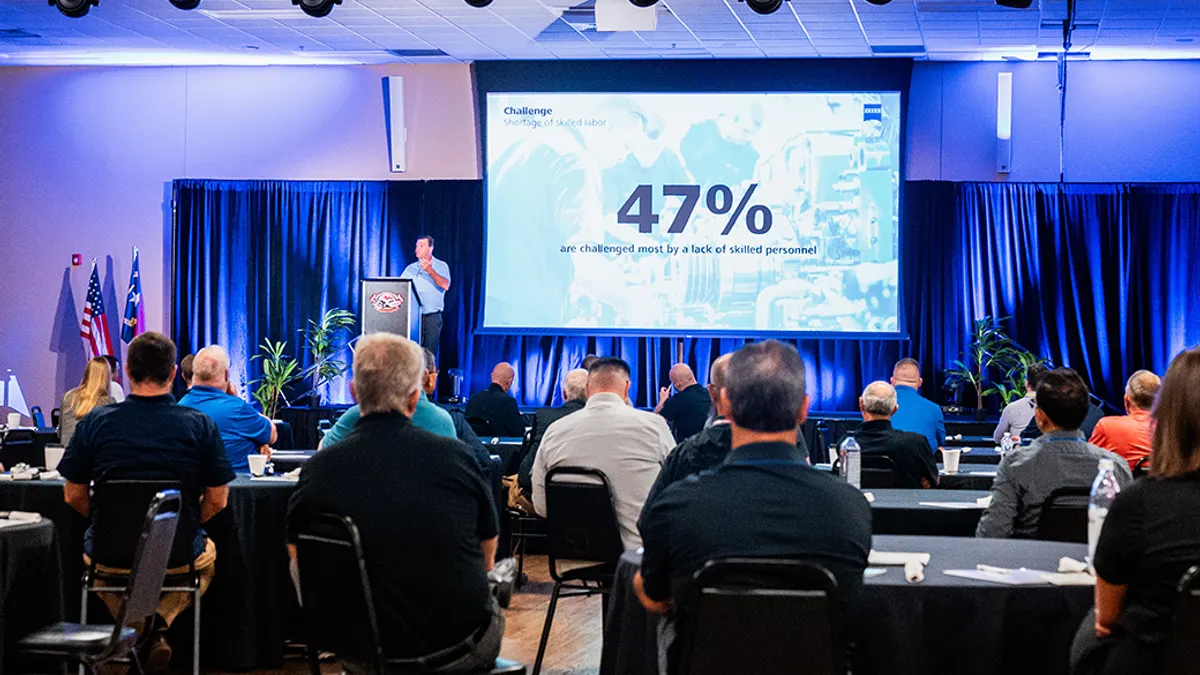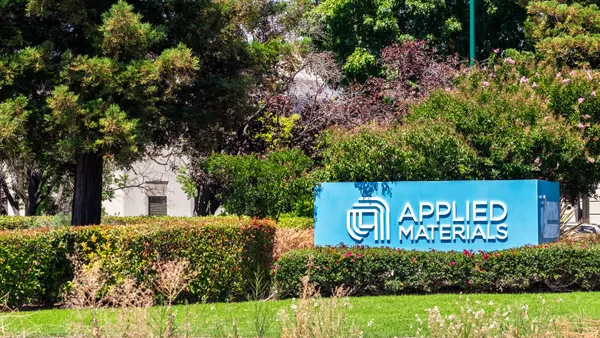U.S. manufacturing is reinventing itself, adapting, innovating, and investing to meet the demands of a rapidly changing world.
As factors like rising material costs and labor shortages shape the manufacturing landscape, manufacturers are prioritizing investment in advanced technologies that support resilience, including new metrology solutions, data management and analytics tools, and artificial intelligence (AI) and machine learning, according to a new report by ZEISS Industrial Quality Solutions.
The report, which surveyed more than 1,100 U.S.-based manufacturers across 49 states, collecting responses from more than a dozen industries, found that 44% of manufacturers view new metrology technology as one of the greatest opportunities to overcome their challenges and 95% of executive and director-level respondents view quality assurance as mission-critical to manufacturing success. This finding indicates that quality’s role has evolved from manufacturing stage to critical enabler of innovation, cost savings, and strategic growth.
Addressing top manufacturing challenges with quality assurance
Summarized from the report, the top manufacturing challenges are listed below along with a description of how quality technologies help resolve them.
The cost of rising materials and rework
With 44% of respondents citing rising material costs as the top concern, this remains a key issue for U.S. manufacturers. Ongoing global supply chain challenges and shifts in government policy, such as tariffs and incentives for domestic production, are prompting manufacturers to pivot their strategies and consider reshoring to improve resilience.
Rising material costs amplify the financial burden of rework and iterations, which 38% of manufacturers cite as a leading quality management challenge. With long lead times to receive materials that are already creating tight margins, utilizing each piece of material can make a difference between a profit and a loss.
The quality solution: In this business climate, precise metrology solutions that reduce rework, minimize iterations, and make efficient use of available materials are mission critical. To achieve this, prioritize quality management systems, real-time monitoring, and root cause analysis tools to prevent defects and minimize costly iterations proactively.
Time-consuming inspection processes
For many manufacturers, time is also a challenge, with 47% citing time-consuming inspection processes as a top challenge. Manual or inefficient inspection processes slow down production, create bottlenecks, and increase costs, especially as product complexity rises. Respondents revealed that old inspection methods are more time-consuming, adding to their day-to-day workload.
The quality solution: Modernize technologies, equipment, and tooling to move faster and more efficiently. Implementing automated metrology solutions saves time and eliminates human error, allowing manufacturers to strike a balance between throughput and precision. Technologies that inspect multiple parts simultaneously and automatically generate a report are key to optimizing processes that currently involve multiple measurement tools and manual measurement documentation and reporting.
Shortage of skilled labor
Nearly half of respondents identified the skilled labor shortage as their top challenge, and the data shows that every industry represented in the report ranks this as their top challenge. Several manufacturers report difficulty in attracting and retaining workers, while others attribute the skills gap, especially in advanced manufacturing, as a major contributor. As a result, 65% of manufacturers believe that the greatest opportunity for overcoming their top challenges lies in employee upskilling and training.
The quality solution: Focus on easy-to-use metrology technologies and software. Implement automation wherever possible to enable fast, accurate, and repeatable quality checks by entry-level workers to help offset labor shortages. Integrate automatic part loading and unloading mechanisms to increase efficiency and decrease manpower. Choose a metrology partner that not only includes training with every new system purchase but also offers a comprehensive program in intuitive formats for continuous learning.
Demand for sustainability
Cost pressures are also driving a demand for sustainability – but for many U.S. manufacturers, this is not only about reducing environmental impact, but it also means optimizing resource use and increasing efficiency.
The report found that sustainability leads as the most important strategic focus for manufacturers, encompassing various aspects, including:
- Business sustainability: Maintaining profitable operations. For example, by balancing precision, speed, and throughput.
- Equipment longevity: Ensuring long-term vendor support and ROI from durable metrology systems. Access to service and maintenance to extend the value of their metrology equipment.
- Process stability: Establishing reliable, long-term processes that are widely adopted across the organization – a process that can be trusted with data accuracy and is flexible to changing circumstances.
- Workforce sustainability: Preventing burnout through accessible tools, streamlined training, and ongoing skill development.
The quality solution: Strengthen precision measurement capabilities and control throughout the production process. By integrating accurate metrology data, manufacturers can simulate and optimize production processes, leading to reduced waste and improved efficiency. This integration supports predictive quality control, enabling proactive adjustments that enhance product quality and optimize resource utilization to control costs while maintaining high quality standards.
Looking ahead: Strategic priorities driving investments
The U.S. manufacturing sector is in active transformation driven by strategic priorities such as sustainability, supply chain innovation, and automation. As manufacturers navigate economic, workforce, and technological pressures, investment in flexible, high-impact solutions that promote efficiency, agility, and long-term resilience is growing. As a result, there is a broad shift toward data-driven manufacturing, where metrology technologies, AI, and smart operations increasingly power quality, precision, and innovation. With most manufacturers steadily increasing their technology budgets and leaders citing 24/7 automation, supply chain visibility, and digital practices as top goals, the industry is evolving toward an integrated, intelligent, and sustainable future.











